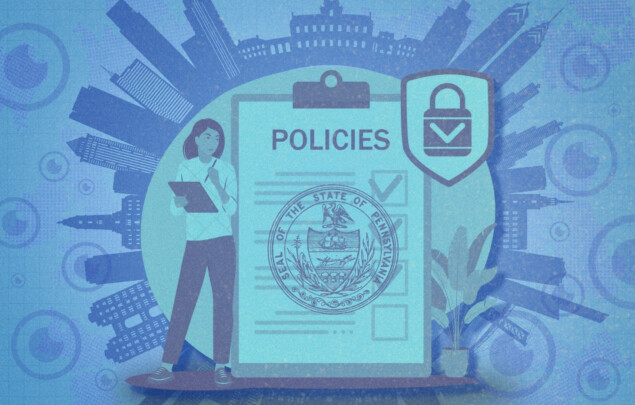A Guide To Pennsylvania’s Consumer Data Privacy Act (PCDPA)
A Guide To Pennsylvania's Consumer Data Privacy Act (PCDPA)

Create a tailored Privacy Policy, Terms & more in under 5 minutes.

Is your business required to have a GDPR compliant privacy policy?
Whether it’s your first time creating a privacy policy, or you want to bring an existing one into line with the latest regulations, there are a number of distinct compliance requirements outlined in the General Data Protection Regulation (GDPR).
The California Consumer Privacy Act (CCPA) is a set of data privacy regulations that came into effect in 2020. It applies to any organisation that does “business” in California that meets certain criteria.
At its core, the CCPA was created to give Californian citizens more control and protection over their personal information. It includes tighter regulations around the collection and sale of personal information, particularly for the Internet age.
To understand what the new law means for your existing privacy policy, let’s start by unpacking what the CCPA considers “personal information”.
Under the CCPA, personal information is defined as “information that identifies, relates to, describes, is reasonably capable of being associated with, or could reasonably be linked, directly or indirectly, with a particular consumer or household.”
Beyond people’s names, addresses, emails, and social security numbers, information such as geolocation data or IP addresses are also considered personal information (you can view a more exhaustive list of the different types of personal information here).
To achieve CCPA compliance, you should start by reviewing your current privacy practices to see if all types of personal information that you collect about customers are being accounted for.
In addition to your standard privacy policy clauses, a CCPA policy should disclose your business’ practices around the following:
These are just some of the CCPA-specific clauses that should be included in your policy. You can check out our comprehensive CCPA privacy policy template here for more detail.
As with any legal document, it’s important to speak to a legal professional to determine the specific regulations that apply to your business; what is required for you to achieve compliance; and how to customise your privacy policy to suit.
Create a custom CCPA-ready privacy policy for your business with GetTerms.io.